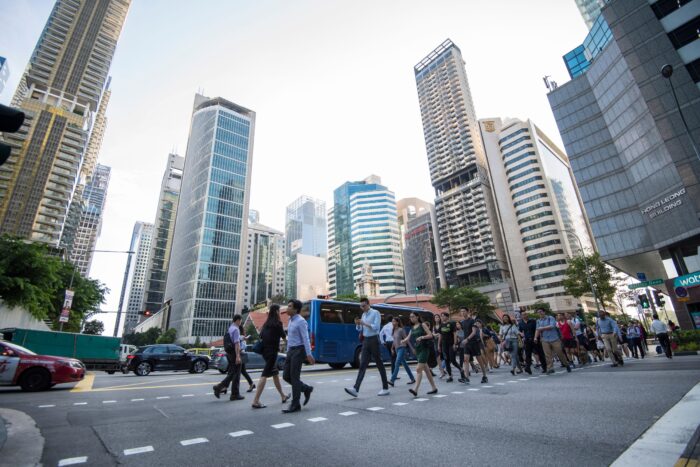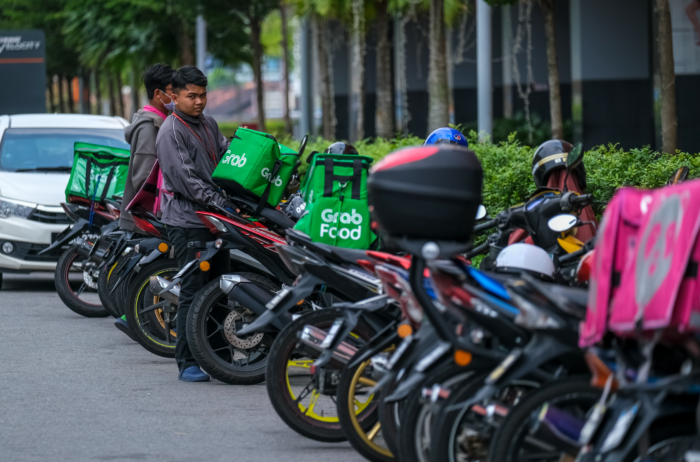Leadership key to enabling workers’ wellbeing through flexible work

Once enacted, flexible work policies and practices require appropriate planning and investment to enable their benefits to be realised.
Minimum wage could be raised again in the Philippines

Wage adjustments are typically made once a year, but wage boards are considering another hike after its recent wage adjustment amid soaring prices.
Business in South Korea told to address workplace gender equality

South Korea has the smallest share of parents who go on leave for their children among developed nations, even as the country’s workforce continues to shrink.
10-day service incentive leave to be implemented in the Philippines

This will not apply to employees who are already enjoying such benefits and those who are employed in organisations with fewer than 10 employees.
A new workplace approach key for HR leaders to succeed in 2023

As HR leaders begin to define their strategies for 2023, those
in the Asia-Pacific region see manager effectiveness as a top priority for 2023.
South Korean lobby groups call for corporate tax to be reduced

A corporate tax reduction will improve cash flow that can then be directed to employment and investments, say the lobby groups.
Childcare the largest barrier to female workforce participation in Australia

Employers can offer the flexibility to work part-time hours as a means to increase female workforce participation.
More employment opportunities for workers with disabilities in Singapore

Interest in companies to hire workers with disabilities has risen by 30% since this August, driven largely by the service sectors.
Equipping workers with in-demand skills a priority for Singapore

This comes as the world is facing uncertainties, from geopolitical tensions to inflationary pressures, which affects the employment market.
Work from home could cost more for Australian workers

If approved and implemented, new tax rules will potentially see lower tax reductions for employees working from home.
South Korea told that labour laws need to improve

South Korea’s employment and workplace practices need to be more flexible and in line with global standards, said the Federation of Korean Industries.
Japan’s top business lobby urges firms to raise wages

It identified young employees, workers with children, and non-permanent employees as those who are most vulnerable to inflation.
Unilever trials four-day workweek in Australian office

For the next 12 months, employees will have the flexibility to choose which day or set of hours is most suitable for them to take off.
Employees in Singapore urged to identify career opportunities

The government plans to utilise data and artificial intelligence (AI) to generate personalised career insights for workers.
China doles out more support for female employees

A revised law, which comes into effect January 1 next year, forbids the sexual harassment of women and reduces barriers to career advancement.
Digital transformation gains momentum in Vietnam

As of end-September 2022, about 490,000 SMEs have participated in a programme that helps accelerate their digital adoption.
Australia to ban wage secrecy clauses in job contracts

Such clauses have traditionally been used to stop co-workers from comparing their wage package and pushing for pay hikes.
South Korea’s labour market urged to adjust to employment uncertainty

Job training and reskilling are measures that can be taken to create more employment opportunities in 2023, says business group.
ServiceNow rolls out programme focused on upskilling workers

The RiseUp with ServiceNow platform aims to train one million workers, offering over 600 free courses and 18 job-related certification paths.
Total employment in Singapore expected to stagnant

Although employment grew in Q3’2022, global conditions are likely to create an uncertain labour market in the coming months.
Younger employees struggling to adjust to flexible work

Besides facing burnout, some 20% of these employees have also expressed stress related to a lack of learning and development opportunities.
Employees in Japan can receive wages through e-wallets from April 2023

Such digital wallets will have a maximum balance of 1 million yen, and employees can use the funds to make purchases or remittances directly.
Singapore firms find talent retention and reskilling schemes most relevant

Besides schemes that help train and retain employees, firms also applied for programmes that have helped them digitalise and adopt technology.
Remote work increases happiness levels among employees in Japan

Remote employees are able to spend more time with their families, sleep better, and experience less stress from commuting to the office.
Hybrid work arrangement still prevalent among office workers

Commuting patterns have not returned to pre-COVID levels as organisations continue to offer hybrid work.
Australia extends paid parental leave to more families

From July 2023, parents hoping to qualify for the extended parental pay scheme will be assessed on their combined income.
Closing the gender gap with pro-female entrepreneurship policies

In addition to helping new enterprises grow, e-commerce could raise women’s participation in the workplace, said the World Bank.
Majority of Chinese at retirement age want to remain employed

Among the reasons why senior workers wish to re-enter the workforce are self-esteem and financial pressure, according to a survey.
Work expectations in hybrid workplaces vary

Despite the convenience, employees working remotely are concerned about fatigue and isolation, an IR survey finds.
More flexibility needed to encourage gig workers to contribute to pensions

Bringing the informal workforce into formal pension systems has been a question facing pension systems around the world.
